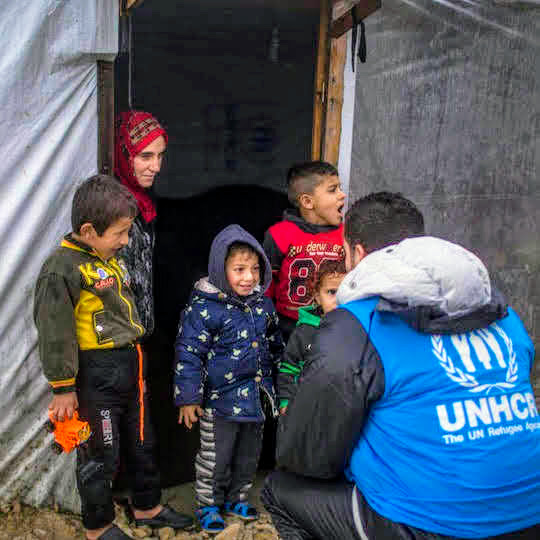Protection Monitoring of Refugees in Response to COVID-19, 2020
Iraq, 2020
Get MicrodataIdentification
UNHCR_IRQ_2020_PM_COVID_v2.1
Protection Monitoring of Refugees in Response to COVID-19, 2020
| Name | Country code |
|---|---|
| Iraq | IRQ |
As a result of COVID-19 movement restrictions and preventative measures, UNHCR initiated the remote protection monitoring exercise as an alternate modality to conduct targeted and systemized protection monitoring surveys for the refugee and asylum seeker population in Iraq. The survey was designed to provide an overview of how COVID and COVID related measures have affected protection concerns of refugees and asylum seekers over time and the continued impact on their access to rights, services, and coping mechanisms over the course of the year. The exercise was initiated in August 2020, covering all governorates of Iraq and surveying Syrian households and of other nationalities. A total 1,407 HH were interviewed in Round 3 (November-December 2020), complementing 1,605 HH interviewed in Round 2 (October 2020), and 1,653 HH interviewed for Round 1 (August-September 2020).
Sample survey data [ssd]
Household
Version
v2.1: Edited, cleaned and anonymised data.
Scope
The scope includes:
- household demographics
- information access
- impact of Covid measures
- services
- coping mechanisms
| Topic |
|---|
| Protection |
| Health |
| Education |
| Connectivity |
Coverage
Whole country
Producers and sponsors
| Name |
|---|
| UNHCR |
Sampling
As of 31 November 2020, 241,682 Syrian refugees (61% urban, 39% camp) and 40,875 refugees of other nationalities resided across Iraq, with over 99% of Syrian refugees located in the Kurdistan Region.
Sample size and demographics were derived from a process of stratification, whereby members of a population are divided into homogeneous subgroups before sampling, thereby facilitating an independent sampling of each sub-group. Accordingly, random sampling was applied for the exercise according to three levels of stratification: (1) governorate, (2) country of origin, and (3) camp and out-of-camp (for Syrian refugees). A random sample was drawn to ensure a 95% confidence level and 10% margin of error.
Survey instrument
The questionnaire contained the following sections:
A. Introduction
B. Consent
C. Bio Data
D. Communication with communities
E. Education
F. Discrimination in access and implementation of policies
G. Coping mechanisms
H. Health
I. Mental health and psychosocial support
J. Return Intention
.
Data collection
| Start | End |
|---|---|
| 2020-08-11 | 2020-12-16 |
| Name |
|---|
| UNHCR |
Data Access
UNHCR (2020). Iraq: Protection Monitoring of Refugees in Response to COVID-19, 2020. Accessed from: https://microdata.unhcr.org
Contacts
| Name | Affiliation | |
|---|---|---|
| Curation team | UNHCR | microdata@unhcr.org |
Metadata production
UNHCR_IRQ_2020_PM_COVID_v2.1
| Name |
|---|
| UNHCR |
2022-09-23
